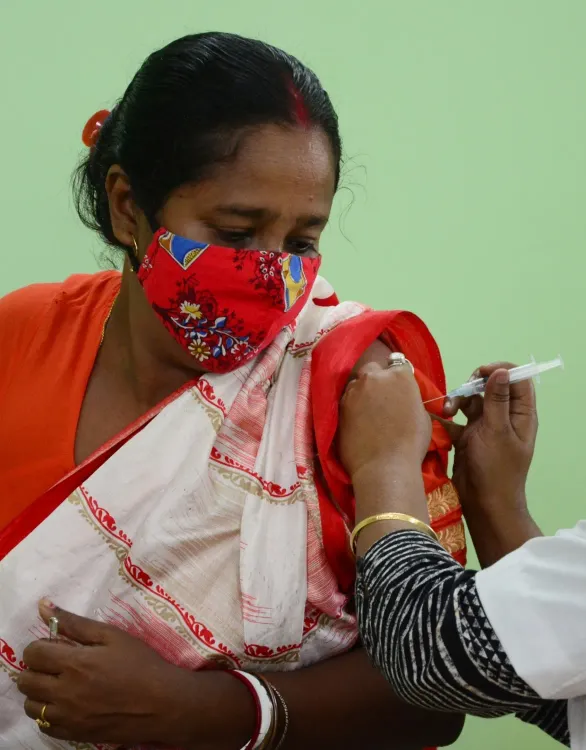Is Tamil Nadu's COVID-19 Antibody Prevalence Really 97%?

Synopsis
Key Takeaways
- 97% of Tamil Nadu's population shows antibodies against COVID-19.
- Effective vaccination campaigns have contributed to high immunity.
- Vulnerable groups must remain cautious despite high antibody levels.
- Reintroduction of safety measures indicates ongoing vigilance.
- Over 200 active cases are currently being monitored.
Chennai, June 12 (NationPress) In light of escalating worries regarding a potential new surge of COVID-19 cases nationwide, the Tamil Nadu government has revealed that the state’s populace exhibits an exceptionally high degree of immunity against the virus, attributed to successful vaccination efforts.
As per the Directorate of Public Health and Preventive Medicine (DPH&PM), the fifth phase of the comprehensive serological survey has disclosed that 97 percent of blood samples collected have developed antibodies against SARS-CoV-2, the pathogen responsible for COVID-19.
This survey, initiated in April this year, concentrated on older individuals across six districts: Chennai, Tiruvallur, Tiruvannamalai, Tiruchirappalli, Dharmapuri, and Kanniyakumari.
A total of 3,643 blood samples were gathered and analyzed for SARS-CoV-2 IgG antibodies.
Officials remarked that the existence of antibodies, even three years post the pandemic's inception, underscores the long-lasting effectiveness of the COVID-19 vaccines administered throughout the state.
These antibodies are vital for the body’s defense mechanisms, as they neutralize the virus and mitigate severe illness.
“The high rate of antibodies among the general population is the main reason why recent COVID-19 cases in Tamil Nadu have shown merely mild symptoms, with fatalities being almost negligible,” stated the DPH&PM.
Dr. Rajani Varrier, an Associate Professor of medicine at a private medical college in Salem, emphasized, “When any infection infiltrates the body, it naturally produces antibodies to combat it. Nevertheless, vulnerable demographics—such as the elderly, pregnant women, and individuals with comorbid conditions—should persist in exercising caution despite the presence of antibodies.”
While the Tamil Nadu government asserts that no COVID-19-related fatalities have been documented this year, data from the Union Ministry of Health and Family Welfare suggests otherwise.
The Centre reports that six COVID-19 deaths have been recorded in the state since January, with over 200 active cases currently being monitored.
In response to the nationwide increase in cases, the Union government recently held a high-level meeting to evaluate preparedness.
All states and Union Territories have been directed to ensure sufficient supplies of oxygen, isolation beds, ventilators, and critical medications.
As a preventive strategy, Tamil Nadu’s health authorities have commenced reintroducing specific safety protocols.
In late May, the Directorate of Public Health issued a recommendation for face masks and physical distancing in public areas.
Following this, the Coimbatore Government Medical College Hospital made mask-wearing obligatory within its premises.
Officials maintain that while the current situation is manageable, ongoing vigilance and preventive measures are crucial to avert any resurgence of the virus.









